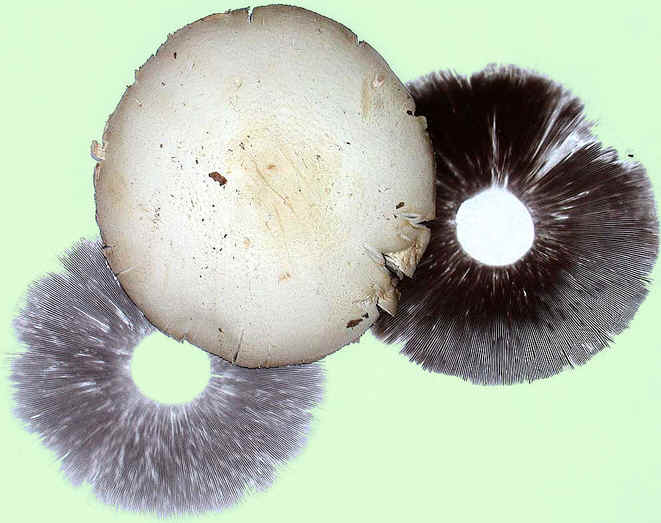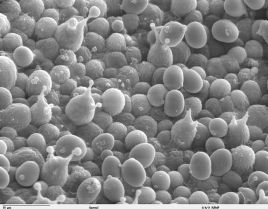Resources of the Central Pennsylvania Mushroom Club
Instructional Articles and Technique Sheets
Material in this section is intended for educational use only and has been drawn from many sources. Unless specifically cited, neither CPWMC or Dr. Barrie Overton makes any claim to authorship.
Understanding Toadstools and Other Mushroom‐like Fungi by Dr. Barrie Overton
You need to know some technical terms to understand some of the descriptions in mushroom guidebooks. The Fungi of Saskatchewan site has a good glossary of mushroom terms. Be sure to check out the illustrated portion toward the end of the page. The Fifth Kingdom website, mycolog.com, has an even more extensive glossary complete with pronunciations! This site also contains Bryce Kendrick's mycology textbook that discusses and illustrates ALL kinds of fungi, including those that cause disease of both humans and plants. If there is something involving fungi that you have always wanted to know, this is the place to get answers!!
Information Sheets
- Form Families: Agaricales -- This document uses scientific terminology to describe the different families of Agaricales. Refer to the two glossary references above for definitions.
- Derivations of Common Names of Agaricales
- Form Families: Aphyllophorales
- Form Families: Boleteceae
- Table of Bolete Characteristics
- Guide to the Mycological Literature


Left: spore print of an Agaricus. Source: G.L. Barron, University of Guelph
Right: Electron micrograph of Agaricus bisporus spores made at Dartmouth University
Mushroom Study Techniques
- Sample Mushroom Collection Data Sheet -- What to record when collecting specimens
- How to Make a Spore Print
- Using Melzer's Reagent -- An Easy Chemical Test Helpful for Identification of Agaricales
- Slide Mounts and Stains
- Preparing Dried Mushrooms for Microscopic Study
- Hints for Studying Perithecia and Ascostromata
- Culture Media for Fungi
- Sterile Culture Technique
- Single Spore Isolation
General Mushroom Information Sites
Michael Kao's Mushroom Expert site contains a huge amount of information. Besides a large section on mushroom identification keys, there in information about: Collecting Mushrooms for Study, Spore Prints, Descriptions & Journals, Identifying Mushrooms, Determining Odor and Taste, Pronouncing Latin Names, Chemical Test Reactions, Preserving Specimens, Using a Microscope, and Mushroom Taxonomy.
Cornell University Mycology Pages This is the gateway to a huge directory of every imaginable mushroom topic! Cornell's mushroom blog also has a lot of interesting information.
Tom Volk's Fungi and Mykoweb also contain a wide variety of useful and reliable mushroom information.
Taylor Lockwood's photo site has some beautiful photos as well as videos and other goodies. Be sure to also take a look at his index of photos by genus and species.
Information about Mushroom Poisoning
This site managed by the North American Mycological Federation contains information about poisonous mushroom for beginners. Mykoweb also has a large section on mushroom poisoning and its treatment.
North American Mycological Association (NAMA) has a good information on what to do about mushroom poisoning, including an excellent discussion of different types of mushroom poisoning. NAMA also maintains a database of cases of mushroom poisoning. Click here for a form to make a report.
Photos of a few deadly poisonous mushrooms
The Mycophagist's Ten Commandments
Blog by a (rare) survivor of Aminita poisoning
Mushroom Identification Aids
The Matchmaker mushroom identification program is specifically for mushrooms of the Pacific Northwest, but there is much useful information for other geographical areas and some excellent pictures. If you want instructions before you try Matchmaker, click here.
This is a great North American Russula Key
Here is a good key for Armillaria species
Key to marasmioid fungi of the pacific northwest
Cornell University's gateway index to more keys than you want to know about!
Other Mushroom Clubs and Organizations
Mycological Association of Washington (MAW)
North American Mycological Association (NAMA) -- CPMC is a member club
![]()
- Login to post comments
